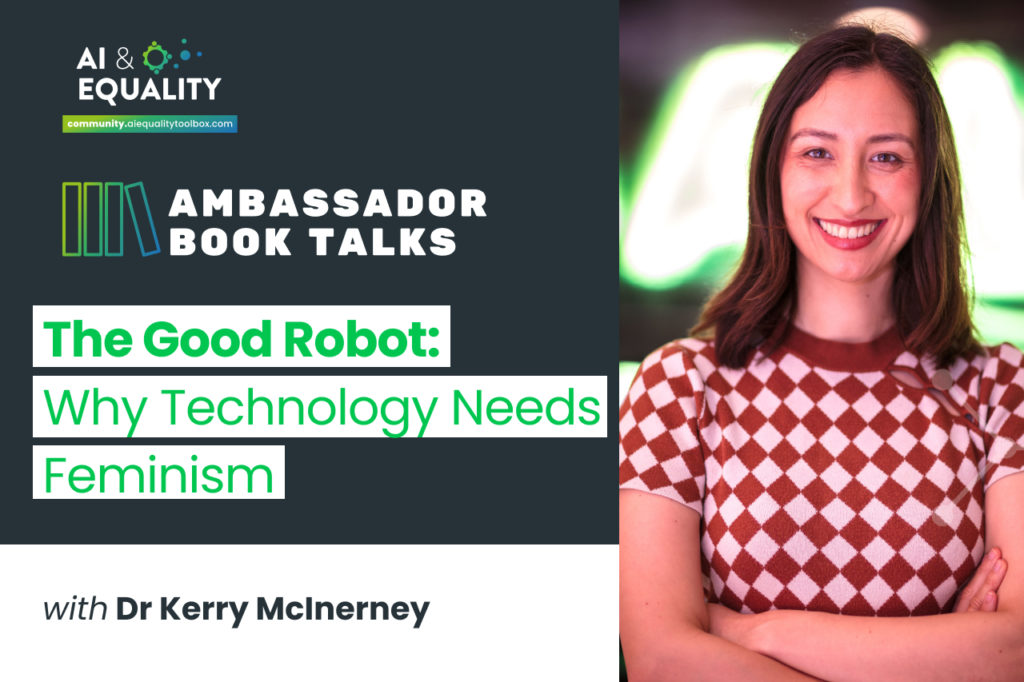In an era where artificial intelligence is evolving so rapidly that it’s hard for ethical guidelines to keep up, Dr Eleanor Drage and Dr. Kerry McInerney urge everyone to take a step back and evaluate. The pair’s new book, The Good Robot: Why Technology Needs Feminism is a critical collection of essays from leaders in the feminist AI field, all attempting to answer a simple provocation: “good technology is…”
The pair, both research associates at the University of Cambridge Leverhulme Centre for the Future of Intelligence, joined Women at the Table’s Ambassador Book Talk series to discuss the book and their own complicated answers to that very question.
“We wanted to frame our book around the idea of good technology because we fundamentally believe that […] the tech industry is suffering from this deep crisis of the imagination,” said McInerney. “At a particular moment in time when we’re caught between these extreme techno pessimist viewpoints that tell us AI is going to eradicate us all, and the kind of fantastical hyper-silicon valley that’s constantly trying to tell us we should buy more and more products […] we were trying to find a way of threading the needle between these extreme narratives.”
The book was borne out of McInerney and Drage’s hit podcast, “The Good Robot,” which premiered back in 2021. Soon, they had amassed a large following of feminist technological thinkers.
“That’s where our book itself came from,” McInerney recalled. “From saying ‘How can we honor this incredible community we’ve been lucky to be a part of […] and how do we give that community some longevity in the shape of something people can take home and keep, long after they’ve listened to a podcast.”
The book is divided into five sections—good relations, good systems, good designs, good visions, and good rebellions—with each guest author trying to answer how, in their opinion, technology can take a pro-justice approach that uplifts, rather than suppresses, marginalized communities. Too often, the authors argue, technology is implemented without those vital checks. Drage points to the example of the UK’s passport-renewal facial recognition software, which allows users to upload rather than print and send in a photo. While lauded for its time efficiency, the technology didn’t recognize the faces of a lot of Black women and falsely reported that their mouths were open.
“[It’s saying] we can’t recognize your body because your body is not the one that aligns with our ideal of citizenship,” Drage said.
Examples like this have caused tensions in the feminist AI community over whether the potential benefits of technological advancement outweigh the harms already inherently embedded in them. The perspectives presented in the book purposefully offer a variety of interpretations on the question, something Drage said was an important consideration when putting the collection together. Unlike during her school years, where everyone agreed with each other, she wanted to encourage friction. “I want readers to go in and think right, now I can build my view of this. And they’ll come out with an opinion,” she said.
None of the essays are more striking or potentially divisive than the book’s closer, “Good Technology is a Fantasy,” by Jack Halberstam. Halberstam, a professor of Gender Studies and English at Columbia University, argues that chasing after “good” technology is a losing game. He points to biometric systems in airport security, which, as someone who is “ambiguously gendered,” nearly always results in pat downs.
“The idea of recognizing bodies is deeply suspicious to me,” he writes. “We do not want a technology that is better at recognizing bodies, we want bodies that are better at evading technological recognition.” Instead, Halberstam advocates for “getting off” of technological regimes altogether. While not a view shared by the other authors featured, McInerney and Drage relished the opportunity to include an essay with that kind of “spikiness.”
“That’s why we wanted it in there so badly. Because we think that kind of juxtaposition is really productive,” explained Drage. Ultimately, the authors conclude, there is no easy way to define good technology such that it works for everybody. It is inherently a risky endeavor and each modification to improve equity in turn opens the door to new harms. Nonetheless, Drage and McInerney believe in the ultimate goal.
“Good technologies create new possibilities for connection and togetherness, for living life differently,” said McInerney. “So for me as an AI ethicist […] I’m always trying to think about what kind of technologies can we make that really do create these new possibilities.”
You can buy the new book HERE and subscribe to the Good Robot podcast HERE or wherever you get your podcasts.


